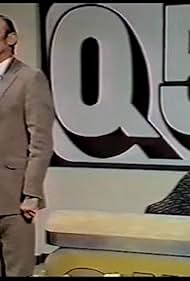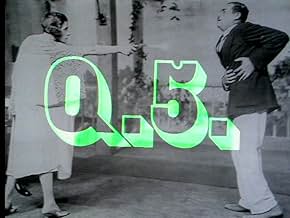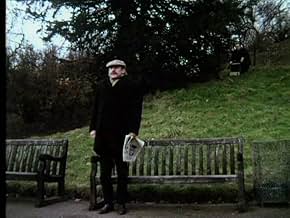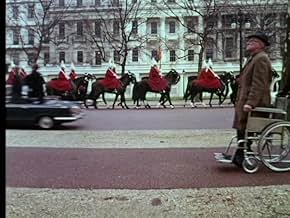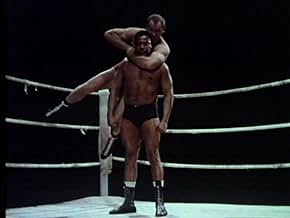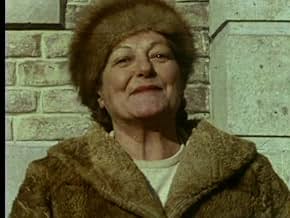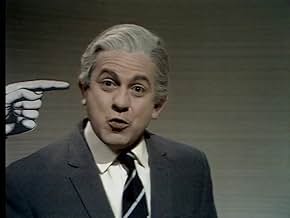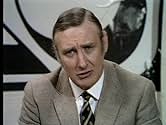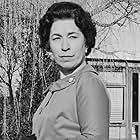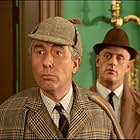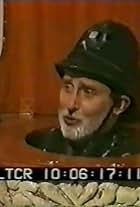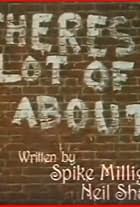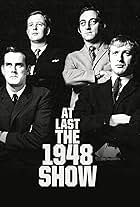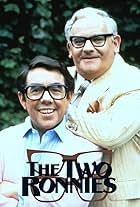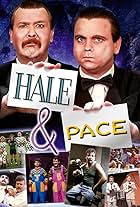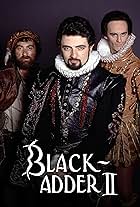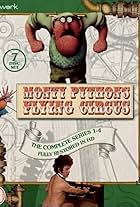Spike Milligan's groundbreaking yet largely unknown surreal comedy sketch series that inspired Monty Python's Flying Circus.Spike Milligan's groundbreaking yet largely unknown surreal comedy sketch series that inspired Monty Python's Flying Circus.Spike Milligan's groundbreaking yet largely unknown surreal comedy sketch series that inspired Monty Python's Flying Circus.
- Nominated for 1 BAFTA Award
- 1 nomination total
Browse episodes
Storyline
Did you know
Featured review
Spike Milligan's "Q" series was certainly ground-breaking. His Goon Show on radio, more than a decade earlier, was very innovate, extremely funny (except for some patches where Spike was stressed and lacked the support in writing or production that he needed), and suitable for all the family (well, the bits that weren't were w-a-y over the heads of the kiddies). But Q5 went further - further than Goon Shows, further than other other television comedy anywhere in the world at that time, and further even than Monty Python in pure silliness. As a result, it went nowhere nearly as far in wide appeal nor, it has to be said, in fun. But not all comedy is fun or funny or pleasant. Spike knows black, absurd comedy, and being pleasant is not what it's about.
One gift Spike had was to see life as it is, and not just ask "why are people like that?" and poke fun at them - as satire does - but to imagine what life would be like with some changes. Often those changes involve people acting or talking the way we might find ourselves thinking at times - we laugh at the outlandish scenarios, but we are really laughing at our innermost thoughts and reaffirming life the way it is, the civilized way we choose to maintain it. Sometimes the story involves something so "wrong", like the idea of a Dalek married, coming home from work, and we must extend our minds long enough to think about the possibilities, setting aside the incongruities, until we again find ourselves laughing at what is wrong with the idea, and subconsciously understanding normal married life (and curries) a little more.
Q isn't always rude, but it sometimes is; be warned. Like some other comedians who use crudity, it can seem that (for example) racist comments, or denigration of women is promoted by the scripts; rather the opposite is true: those who do this are ridiculed, but it remains an unpleasant experience on many counts, for many types of viewer. Although funny in many places, this is primarily art, and a form where the viewer may suffer for the art more than the artist.
One gift Spike had was to see life as it is, and not just ask "why are people like that?" and poke fun at them - as satire does - but to imagine what life would be like with some changes. Often those changes involve people acting or talking the way we might find ourselves thinking at times - we laugh at the outlandish scenarios, but we are really laughing at our innermost thoughts and reaffirming life the way it is, the civilized way we choose to maintain it. Sometimes the story involves something so "wrong", like the idea of a Dalek married, coming home from work, and we must extend our minds long enough to think about the possibilities, setting aside the incongruities, until we again find ourselves laughing at what is wrong with the idea, and subconsciously understanding normal married life (and curries) a little more.
Q isn't always rude, but it sometimes is; be warned. Like some other comedians who use crudity, it can seem that (for example) racist comments, or denigration of women is promoted by the scripts; rather the opposite is true: those who do this are ridiculed, but it remains an unpleasant experience on many counts, for many types of viewer. Although funny in many places, this is primarily art, and a form where the viewer may suffer for the art more than the artist.
Details
Contribute to this page
Suggest an edit or add missing content

